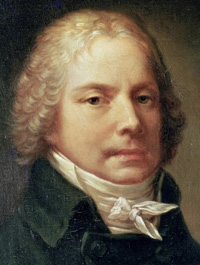On this date in 1754, French diplomat Charles-Maurice de Talleyrand-Périgord was born in Paris to aristocratic parents who, while not wealthy, both held positions at the court of Louis XV. Talleyrand attended the seminary of Saint-Sulpice while studying theology at the Sorbonne until age 21. He was ordained a priest four years later and in 1780 became agent-general of the clergy, a representative of the Catholic Church to the French crown.
His career spanned the reigns of Louis XVI, Napoleon, Louis XVIII, Louis-Philippe and the years of the French Revolution. His name has become a byword for crafty, cynical diplomacy. He was consecrated as bishop of Autun in 1789.
During the Revolution he became president of the Constituent Assembly and helped frame the Constitution. He proposed the nationalization of church property and worked for a secular system of education. Talleyrand abandoned his bishopric in 1791, then was excommunicated by Pope Pius VI. He was Napoleon’s main adviser in reducing the power of the papacy. His long-held agnosticism combined with his excommunication led to widespread skepticism regarding a tale of his alleged deathbed conversion by a priest, which is a common and fanciful trope employed by religious apologists whenever a famous nonbeliever dies.
Near the end of his life, he reconciled with the Catholic Church and was given the last rites. (D. 1838)


